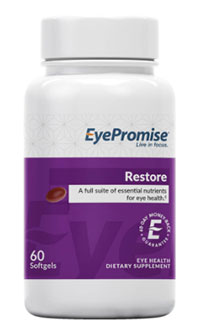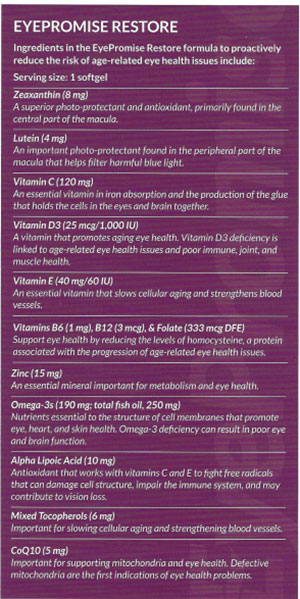 February is Age-Related Macular Degeneration (AMD) awareness month. This is a great opportunity to bring up the many ways we can be proactive with the prevention of AMD. Nutrition is a key factor in helping you lower the chances of developing AMD. Dietary intake of carotenoids such as zeaxanthin and lutein are incredibly important for our ocular health. These are found in green leafy vegetables like spinach and kale as well as orange pigmented vegetables like sweet potatoes and butternut squash.
February is Age-Related Macular Degeneration (AMD) awareness month. This is a great opportunity to bring up the many ways we can be proactive with the prevention of AMD. Nutrition is a key factor in helping you lower the chances of developing AMD. Dietary intake of carotenoids such as zeaxanthin and lutein are incredibly important for our ocular health. These are found in green leafy vegetables like spinach and kale as well as orange pigmented vegetables like sweet potatoes and butternut squash.Sometimes dietary intake alone is not sufficient for getting our daily recommended dosage. One way to close the gap is to take a daily ocular multivitamin. Our preferred choice is Restore, from EyePromise. This eye vitamin has the recommended daily doses of zeaxanthin and lutein but also includes vitamins C, D3, E, B6, and omega 3s. This is a great way to get your regular daily vitamins along with the beneficial eye vitamins.
Zeaxanthin and lutein are important because they help block the shorter, higher-energy wavelengths of light from sunlight and digital devices called “blue light.” Studies suggest that too much blue light may disrupt our sleep cycles and cause eyestrain on digital devices.
One way we can determine a person’s risk of developing AMD is to perform a test called the MPOD (Macular Pigment Optical Density).
This testing is a non-invasive way to know the level of protective pigment inside your eyes.
 Risks for developing age-related eye health issues include:
Risks for developing age-related eye health issues include:– Over 50 years of age
– A family history of macular degeneration
– Light skin and eyes
– Smoking (former or current)
– Poor diet
Schedule your exam today to have your ocular health examined as well as your MPOD measured. Also, you can click the link below and order vitamins through our website!
